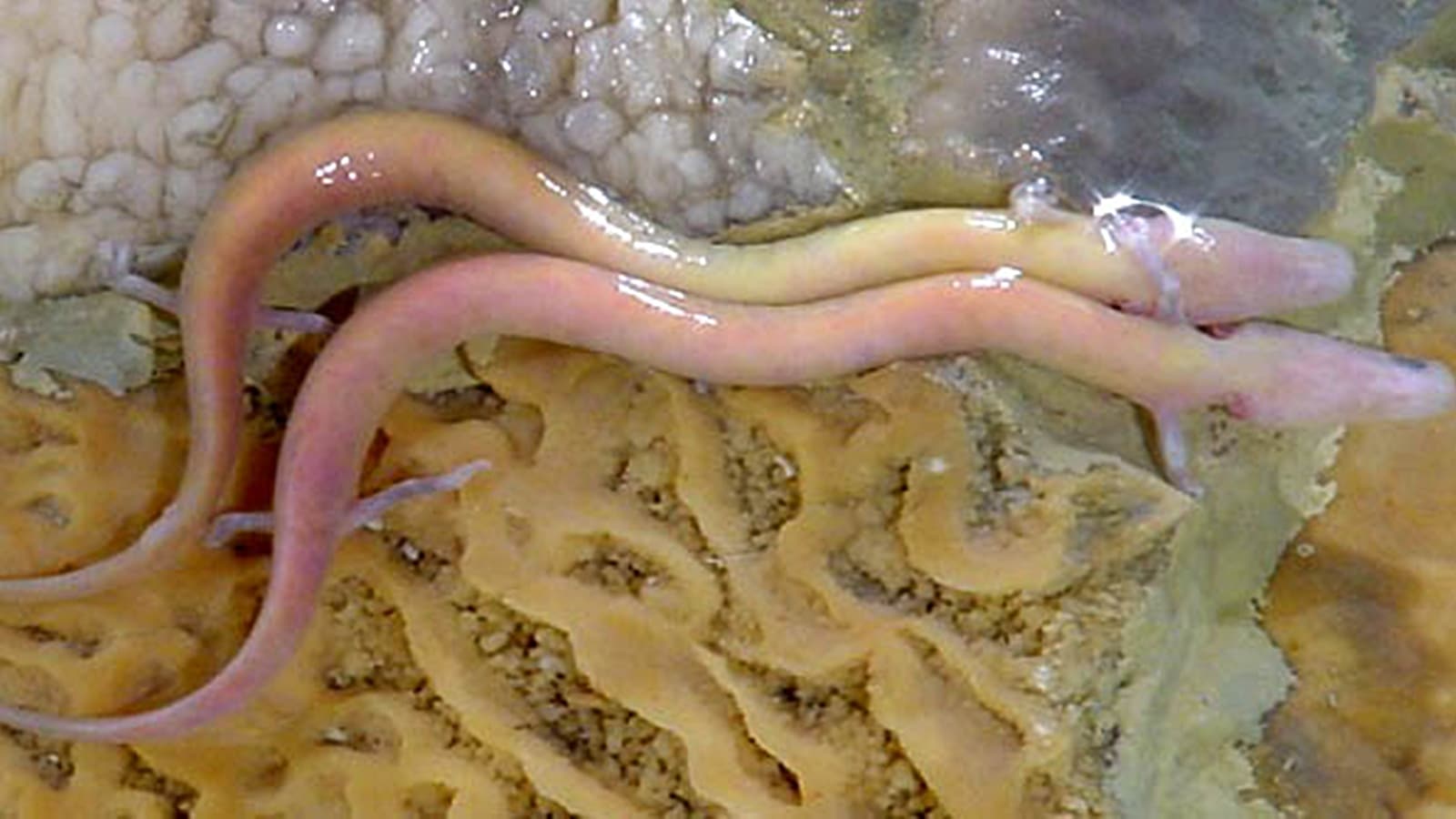📣 For more lifestyle news, click here to join our WhatsApp Channel and also follow us on Instagram
6 animals that are found deep inside caves and nowhere else in the world
Deep inside caves, a few extraordinary animals have made them their only home
 Explore the fascinating world of troglobites—animals uniquely adapted to life in caves (Source: Wikimedia Commons)
Explore the fascinating world of troglobites—animals uniquely adapted to life in caves (Source: Wikimedia Commons)Caves are quiet and dark, tucked a world away from the busy life above ground. But deep inside them, a few extraordinary animals have made caves their only home. These are called troglobites—creatures that are born, live, and die in darkness, never stepping into sunlight.
They’ve evolved in strange and wonderful ways to suit the underground life. Over time, they’ve lost their colour, many of them can’t see anymore, and they move slowly—saving energy in a place where food is scarce. But what they’ve lost in sight, they’ve gained in other senses. They’re masters of touch, smell, and sensing the tiniest of movements in the still air around them.
Let’s meet a few of these fascinating creatures.
Olm (Proteus anguinus)
Found in the deep limestone caves of Slovenia, the olm is a pale, eel-like amphibian that looks like it belongs in a fairy tale. Locals once believed it was a baby dragon. It lives for up to 100 years and can go years without eating anything. It’s completely blind but makes up for it with an excellent sense of smell and hearing.
Blind cavefish (Typhleotris mararybe)
This rare fish lives in the underground rivers of Madagascar. Though completely blind, it still has dark skin, which is rare for cave creatures. It feels its way around using the water’s movement, carefully navigating its pitch-black world.
 Found in the deep limestone caves of Slovenia, the olm is a pale, eel-like amphibian that looks like it belongs in a fairy tale. (Source: Wikimedia Commons)
Found in the deep limestone caves of Slovenia, the olm is a pale, eel-like amphibian that looks like it belongs in a fairy tale. (Source: Wikimedia Commons)
Huntsman spider (Sinopoda scurion)
Discovered in Laos, this huntsman spider is the first of its kind found without eyes. It lives so deep underground that eyesight simply wasn’t needed anymore. It hunts in total darkness, using vibrations to sense its prey.
Cave water scorpion (Nepa anophthalma)
This strange little creature lives in Movile Cave in Romania—a cave sealed off from the outside world for millions of years. The air in the cave is full of toxic gases, but somehow, this scorpion-like insect has adapted to survive there, despite having no eyes.
Leptodirus cave beetle
First found in the caves of Slovenia in the 1800s, this beetle is slow-moving and pale, with a body built for squeezing through tiny cracks. It breathes slowly and can survive in areas where few other insects can.
Blind freshwater crab (Cancrocaeca xenomorpha)
This little crab, found in Indonesia’s Sulawesi caves, is one of the most cave-adapted crabs in the world. It’s small, ghostly white, and has no eyes. It spends its whole life in darkness, never seeing light.
These animals are fragile. Because they can’t live anywhere else, even small changes to their caves—like pollution or construction—can put them at risk. Many of them exist in just one or two caves on the whole planet. If we lose the cave, we lose the species. That’s why protecting cave ecosystems is so important.
📣 For more lifestyle news, click here to join our WhatsApp Channel and also follow us on Instagram
- 01
- 02
- 03
- 04
- 05



























